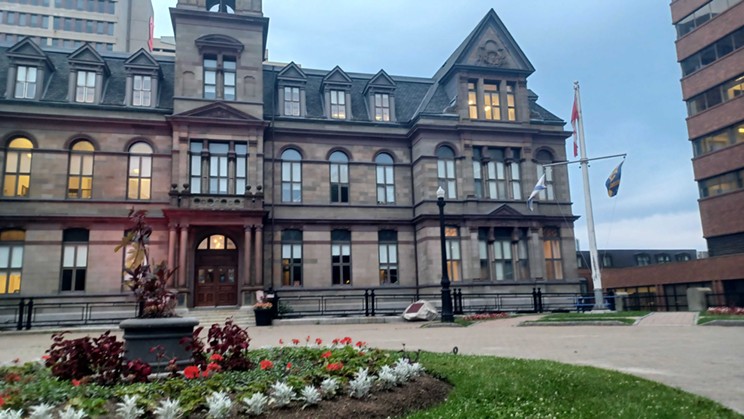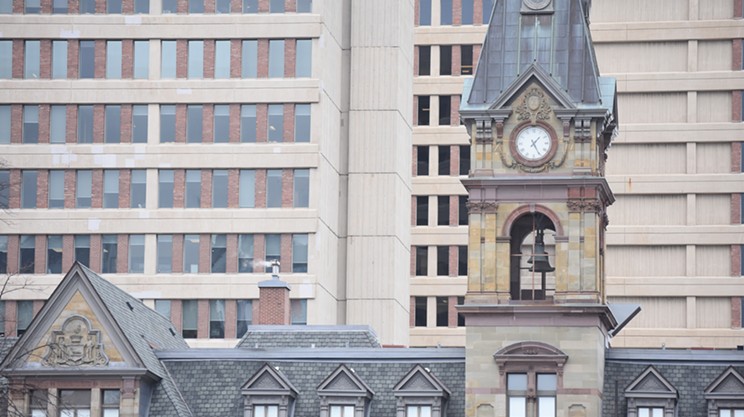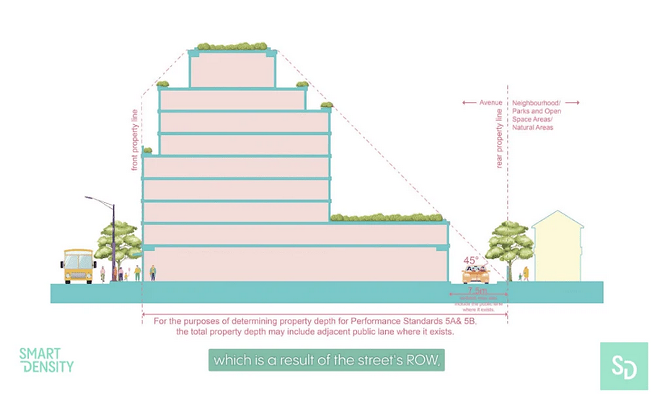Police reform featured heavily in Halifax Regional Council’s regular meeting on Tuesday, Sep. 10. Council gave first reading to an amendment to bylaw P-100, formally known as the Police Board By-law. This amendment will add the position of Commissioner of Public Safety, a person to act as a liaison between the HRM, the Halifax Regional Police and the Board of Police Commissioners. Which should result in someone watching out for the public’s interest in the relationship between the Board and the Police, which has typically worked to advance the interests of police in the HRM.
The amendment also includes the addition of a bastardized version of the “Peelian Policing Principles.” The original principles were first penned in 1829 are a nine-step guide to making sure police serve the public interest which would decrease the need for police violence and increase a community’s trust of police. This increased trust would result in the community providing police more information, which could be then used to proactively prevent crimes from being committed in the first place. Or as Peelian Priniciple number one reads: “To prevent crime and disorder, as an alternative to their repression by military force and severity of legal punishment.”
Due to this being the first reading, the public is welcome to provide feedback to the Board of Police Commissioners by sending an email to [email protected]. Such suggestions could include things like making sure second reading of this bylaw amendment adds the Peelian principle “to recognize always that the test of police efficiency is the absence of crime and disorder, and not the visible evidence of police action in dealing with them.”
During the debate, councillor Becky Kent voiced concern about the addition of the clause: “The police must undertake their basic mission with the approval of, and in collaboration with, the public and other agencies.” Kent, who happens to be chair of the Board of Police Commissioners, was concerned that the board can’t gauge the public’s approval, due to things like the many people who speak out against police spending during every budget season. But municipal lawyer John Traves explained that getting public approval has always been a requirement of the BOPC: Due to the board having commissioners who are members of the public and councillors elected by the public, everything the board does is de facto approved by the public.
It should be noted, however, this can create a self-reinforcing feedback loop that is closed to the general public if the commissioners are successfully lobbied by the HRM’s police forces to advance policy changes desired by the police, instead of policy changes desired by the public. This feedback loop has been happening for a while in Halifax, and is one of the big reasons why the new Commissioner of Public Safety is needed. There is a huge gap between what the public wants, as expressed in the HRM’s strategic planning documents, and what the public wants, as expressed by the Board of Police Commissioners. So much so that one of the main jobs of the public safety commissioner, per the proposed bylaw amendment, is this:
The Chief of Police shall report to the Commissioner with respect to the development, planning and implementation of police service matters as well as the Halifax Regional Police’s implementation of, and compliance with the Municipality’s administrative policies and procedures.
This policy gap is the result of a classic Men In Black conundrum. For those who have never seen the film, there’s a scene where a bunch of bright military and police candidates are tested to see if they belong in the organization that polices aliens on Earth. One of the tests involves a gun range full of potential targets—mostly aliens, with one target of a human child carrying quantum physics textbooks. Will Smith’s character explains that even though the aliens looked scary, they were doing normal things. The only target acting strange was the child carrying books that Albert Einstein would struggle to read.
Smith gets recruited to join the Men in Black, and the rest of the applicants are dismissed with a withering “Gentlemen, congratulations. You're everything we've come to expect from years of government training.”
The city of Halifax has historically been stymied in its ongoing efforts to reform not due to ill will or malicious intent, but because the HRM’s oversight body and police forces are doing the best they can. Unfortunately for all of us, so far everything the BOPC and police have come up with is everything we’ve come to expect from years of government training. And the news is that the new Commissioner of Public Safety is the city recognizing the shortfalls of the status quo and attempting to correct them.
Things that passed
Council is closing part of the right of way in the Cogswell District due to ongoing development. ICYMI from last council meeting, this project is currently on schedule and under budget, a rarity these days.
Councillor Pam Lovelace brought forward an information item about the existing municipal legislative framework to protect the city’s coastal lands. The city is starting the process of assessing the risk to the coast and figuring out how to mitigate and prevent future issues. There’s not a lot of information yet, and city staff say they expect a plan to come back to council next year. The good news is that this plan will try to prevent issues by regulating new development and all major infrastructure projects. The plan is also expected to prioritize and mitigate existing issues with coastal development like Bedford Highway’s regular flooding—more details to follow when this report comes back to our new council sometime next year.
For an ATV rider to go for a spin on a four-wheeling trail, they either need to buy a truck to haul the ATV to the trail, or break current traffic laws by riding the ATV on roads to get to the trail. The city did a pilot to see if ATVs could coexist with cars on some roads, and after the successful completion of that pilot, council passed this bylaw and the city is now allowed to designate municipal roads for ATV use if the posted speed limit is 70kph or less. Councillor Kathryn Morse voted against this motion, because although staff talked to ATV users of trails, they didn’t talk to people who walk or ride bikes on the trails. Morse didn’t think it fair to make a change like this without talking to the people most likely to be negatively affected. Fair point, but the majority of council wasn’t swayed. This change will increase ATV use of trails and likely decrease the walking and bike riding on the same trails.
The residents of Lakehill Drive in Gaetz Brook will pay $112,597.08 for the paving of the aforementioned drive. Since paving Lakehill Drive last year was obviously a public good that everyone in the province will benefit from, taxpayers throughout the city and province picked up the tab for the rest of the $337,825.02 bill for paving.
The city is changing how much it charges for field rentals; overall, the cost of most field rentals will go down slightly. This is part of the on-going playing field strategy refresh, which started in April 2023.
Shannex Development Limited wants to change Bedford's municipal planning strategy for a 2,000-plus-person seniors’ facility. This got first reading, and public hearings will be scheduled.
The Upper Hammond Plains Community Centre, the Lake & Shore Community Centre, and the Mushaboom Community Hall all had their operating agreements renewed. Councillor David Hendsbee pulled the Mushaboom Community Hall motion off the consent agenda so he could give staff a huge list of renovations required to the Mushaboom Community Centre building.
The city of Halifax wants to go into debt to the tune of $334,471,515. Because the city is not allowed to send itself into debt, city council has to ask the province for permission. With that out of the way council voted to approve the debt they requested permission to obtain. In the report about this desired debt, staff write it “includes Regional Council approved in-progress capital projects in which the investment in infrastructure will provide a value to the municipal service it supports for at least a 10-year period.” This borrowing request also includes at least $41,404,623 in dedicated automotive infrastructure spending, which does not, and will not, provide value to the municipality for at least 10 years. Instead of a long and boring explanation about the nuance of road building, here’s a clip from the Australian Broadcasting Corporation’s show Utopia.
Council will give grants totalling $199,864.78 to the city’s four volunteer search and rescue organizations for the last time, hopefully. Since the city is learning lessons from last year’s climate apocalypse primer of a summer, there’s been a lot of debate about whether or not such an essential public service like ground search and rescue should be left up to volunteers on an ad hoc grant-based funding model. The answer, unsurprisingly, is no. As a result, next year the city is planning to move search and rescue organizations to a more reliable municipal service agreement.
In more police oversight activity, council debated the independent report about the public park evictions of Augsust 18, 2021. More on this is in the Notable Debates section below, but before this debate started, the CAO Cathie O’Toole wanted to clarify some things that she saw in the media or on social media, such as the suggestion that the city was reluctant to do the independent review. While it is likely true that the city was receptive to this review and is genuine in its desire to rebuild public trust, the lack of transparency and communication about municipal intentions back when this report was commissioned in 2023 also did a pretty good job of sowing seeds of distrust. It is these artisanal, hand-crafted, locally sourced seeds of distrust the city is now reaping. O’Toole also wanted to clarify that former CAO Jaques Dubé participated in this review, as did every municipal employee who was asked to do so. Speaking of sowing seeds of distrust, the CAO clarified that some municipal employees, officers of the HRP, weren’t asked or instructed to participate. Instead, Don MacLean, the acting chief of the HRP at the time, encouraged HRP members to participate. Who can say, really, why the public might not trust an independent report that didn’t have the power to compel information out of the organization which screwed up the worst? Ah well, some mysteries can’t be solved.
The signs demarking Beechville will be moved to the original historic boundaries of Beechville/Goodwood. During this debate, councillor Patty Cuttell weighed in to say that the debate about the boundary change highlighted issues in the community. For example, the people of Beechville feel hard done by because they had land stolen a few hundred years ago. Cuttell said this isn’t fair to the people of Goodwood, because part of the land that was stolen from Beechwood to create Goodwood was then stolen back by the city in the 1940s. This means the people of Goodwood should take priority. She argued that like the predominantly Black residents of Beechville, the predominately white residents of Goodwood were treated the same over the past 300 years because both groups were poor. Of all the times to try and address any injustices faced by the residents of Goodwood, the absolute worst is at the last minute while derailing the city’s efforts to correct a historic injustice to the African Nova Scotian community of Beechville. Cuttell tried to put a different motion on the floor, but never got the chance because councillor Iona Stoddard put the staff-recommended motion on the floor first. This passed with Cuttell as the lone vote no.
The city is considering changing how it gets financial security from developers. If a developer wants to build a subdivision, the city asks for a letter of credit to ensure that public infrastructure is built as promised. Clayton Developments has asked the city to switch to bonds. If this change goes through, developers can buy a bond for the price of the proposed development's planned infrastructure. If the developer installs the public infrastructure, they get the bond back. If the developer does not install the infrastructure, the city keeps the bond and can use the money to build the infrastructure. This passed first reading on Tuesday, and staff will do some research on how this could be implemented and come back at some point Soon™ with any recommended changes and second reading.
Council passed a motion to continue the municipality’s work of reparations to African Nova Scotian communities. This is a pretty dense document and seems more or less good. It may also be a bit of a political boon to the community land trust proposed for Cogswell.
During the Upper Tantallon fires last year, the city learned that it really didn’t have the required flexibility to coordinate a quick and efficient institutional response to such a large-scale emergency. In a demonstration of doctrinal flexibility, the city passed this bylaw amendment to improve the municipality’s ability to respond to large-scale emergencies.
At long last, the Women’s Advisory Committee’s motion to update their terms of reference, change their name and get their work plan approved is coming before council, after months of debate and a slog of municipal bureaucracy. The members of this committee found they were running into some issues with the focus of the committee being women. To oversimplify months of policy debate, the committee was trying to set its work plan and come up with some realistic things the committee could do to make the lives of women in Halifax better. During the debate, the committee realized that the policy framework that governs their existence has some pretty substantial built-in limitations. For example, some issues that affect women can’t adequately be addressed if the committee can only focus on women, especially when considering many of the issues women face are caused directly or indirectly by men. This naturally led to a debate about how “woman” should be defined, due to the existence of transgendered people. The committee concluded that their work should include a broader group of “women/gender diverse individuals” because trans women should also be included, and any policy that benefits gender diverse individuals almost always benefits women too. Nevertheless, councillor Trish Purdy stopped the voting to explain her no vote saying, “I have to respectfully disagree on this one. I think that women do deserve their own advisory committee.” It should be noted that regardless of qualifiers, it’s impossible to respectfully tell the experts on the advisory committee that they’re dumb and wrong about including gender-diverse individuals in the HRM’s equity work.
The 10-storey building next to the church at 5522 Russell Street was approved, even though that one guy on the Heritage Advisory Committee doesn’t like it.
Speaking of heritage properties, 6105 Willow Street will get a public hearing to see if it should become a heritage property after successfully surviving a rigorous bun toss.
The HRM currently uses “Angle Controls” to guide development. In simple terms, if there is a tall building, every other part of the building (or surrounding buildings) needs to fit under an arbitrary angle drawn from the roof. Which jacks up the cost of developments and prevents housing from getting built. This is why councillor Morse is asked for (and will get, thanks to a unanimous vote) a staff report to find alternatives to angle controls.
Notable Debates
Councillor Kent, chair of the Board of Police Commissioners, kicked off the debate about the independent review of the Halifax Regional Police’s actions while evicting unhoused people and arresting protestors in August 2021 by demonstrating she does not understand the role of the Board of Police Commissioners. She started the debate by saying “that after a review like this, I think it’s important to declare a few things: The Board of Police Commissioners stands firm in its support of police forces in the HRM.”
The only problem with such a firm stance is that the role of the city’s independent police oversight board is not to support the police forces. The board's role in police oversight is to support the public. This is explicitly the board's role according to the Police Act, which says things like: “The function of a board is to provide (a) civilian governance on behalf of the council in relation to the enforcement of law, the maintenance of law and order and the prevention of crime in the municipality; and (b) the administrative direction, organization and policy required to maintain an adequate, effective and efficient police department.”
Kent is the epitome of what we’ve come to expect from years of government training. If the head of independent oversight felt the need to declare anything off the top, it should not have been a firm commitment of support for the people who screwed up. Especially if these remarks are opening a debate about a report that says the Board of Police Commissioners can and should have done more to prevent the police from screwing up the operation that day.
During the debate, councillor Morse pointed out that the HRP members interviewed for this report said that this operation was their “worst day in policing.” And it really must be stressed that the throughline for this independent report is that if Halifax’s police oversight mechanisms were functional, the board would have been able to stop the high-ranking police officers from putting the rank-and-file police officers in needless and avoidable conflict with protestors and unhoused people.
It is demoralizingly disingenuous for the head of Halifax's independent police oversight body to declare firm support for the police. For starters, that very clearly conveys that police officers are more important to the board than members of the public. But we know this: One of the reasons the Commissioner of Public Safety position is needed is because the board has been failing at their job of oversight due to their unwavering, uncritical support of Halifax’s police.
Kent needs to be removed from the BOPC because at the meeting where the councillors voted to backstop the board’s lacklustre police oversight, right before a debating a report highlighting the need to change, the head of Halifax’s police oversight body doubled down on a firm commitment of support to making the same mistakes that got us here in the first place.




